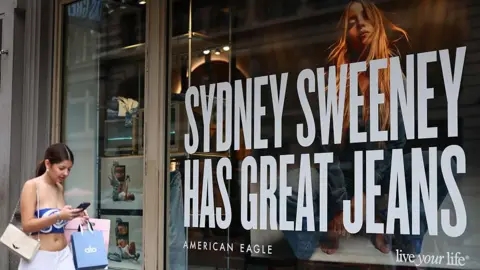A digitally crafted model has made waves in the fashion world after appearing in a major magazine, reigniting concerns about unrealistic beauty ideals and the future of human representation in advertising.
The controversy stems from a recent campaign by a well-known clothing brand, which featured a strikingly flawless blonde model—later revealed to be entirely artificial. While the publication clarified that the inclusion was part of an advertisement rather than editorial content, critics argue that such imagery risks undermining progress toward diversity and body positivity in fashion.
The creators behind the AI model, a tech startup specializing in digital personas, insist their work is not intended to replace human models but rather to offer brands an alternative marketing tool. They claim their designs are realistic and no more idealized than traditional ad campaigns featuring supermodels. However, skeptics counter that AI-generated images—free from human imperfections—set an impossible standard, particularly for young audiences already grappling with self-image issues.
Industry veterans have voiced strong opposition, calling the move a step backward for inclusivity. Some argue that after years of pushing for broader representation—including models of different sizes, ethnicities, and gender identities—the rise of AI figures threatens to erase hard-won gains. Others worry about the economic impact, suggesting brands may prioritize cost-cutting digital solutions over hiring real talent.
Adding to the debate is the lack of strict regulations around AI labeling. While the ad in question included a small disclaimer, critics say it’s easy to miss, potentially misleading viewers into believing the model is real. Mental health advocates warn that exposure to such flawless, unattainable imagery could worsen body dissatisfaction and related disorders.
Despite the backlash, AI-generated models may be here to stay. Supporters of the technology suggest it could eventually allow consumers to visualize clothing on personalized avatars, revolutionizing online shopping. Yet, others predict a backlash as society grows weary of artificial perfection.
As the fashion industry navigates this new frontier, the question remains: Will AI enhance creativity and accessibility, or will it deepen unrealistic expectations at the expense of authenticity? The answer may shape not just the future of modeling but also how we define beauty itself.









